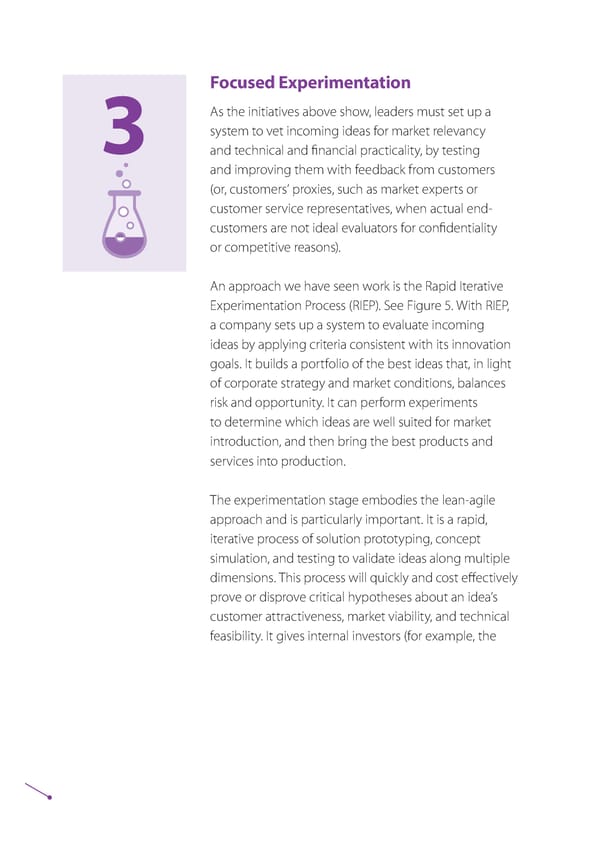Focused Experimentation As the initiatives above show, leaders must set up a 3 system to vet incoming ideas for market relevancy and technical and financial practicality, by testing and improving them with feedback from customers (or, customers’ proxies, such as market experts or customer service representatives, when actual end- customers are not ideal evaluators for confidentiality or competitive reasons). An approach we have seen work is the Rapid Iterative Experimentation Process (RIEP). See Figure 5. With RIEP, a company sets up a system to evaluate incoming ideas by applying criteria consistent with its innovation goals. It builds a portfolio of the best ideas that, in light of corporate strategy and market conditions, balances risk and opportunity. It can perform experiments to determine which ideas are well suited for market introduction, and then bring the best products and services into production. The experimentation stage embodies the lean-agile approach and is particularly important. It is a rapid, iterative process of solution prototyping, concept simulation, and testing to validate ideas along multiple dimensions. This process will quickly and cost effectively prove or disprove critical hypotheses about an idea’s customer attractiveness, market viability, and technical feasibility. It gives internal investors (for example, the
 Enterprise Agility: Pushing Innovation to the Edge of the Organization Page 6 Page 8
Enterprise Agility: Pushing Innovation to the Edge of the Organization Page 6 Page 8